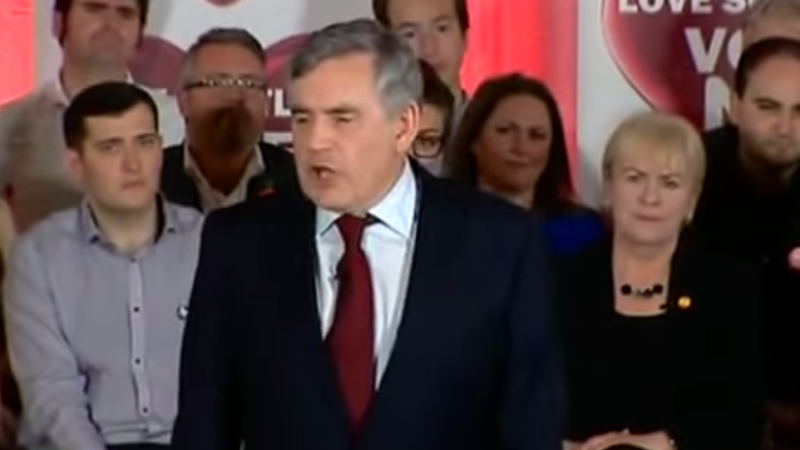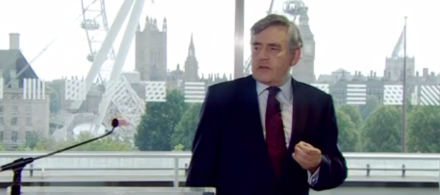

In the town Kirkcaldy where I was brought up and which I represented in Parliament until earlier this year, there is a small and wonderfully innovative family centre devoted to helping children in need. Three years ago at Christmas it provided parcels for 100 children in need. Last year the figure had risen to 500. This year it will be 800. A few years ago the main presents were toys. Now the gifts have to be basic food and essentials. In some cases, the families do not just need food: they need cookers before they can even begin to provide a Christmas meal.
This is the new face of poverty today. We are now seeing more poverty, worse poverty and worsening poverty. There are now four new food banks near where I stay, and increasingly the people who need to use them are working men and women whose weekly wage is simply not enough to make ends meet.
The new poverty we are witnessing today hits Scotland Wales, Northern Ireland and the poorest regions of England hardest but as the TUC has just shown, in a region by region breakdown, no area and no community is unaffected. A report out this week by the Trussell Trust charts the misery thousands of families face every day all across the country when their benefits are wrongly cut off.
So, when George Osborne stands up to deliver his autumn statement next Wednesday, he should do so in the knowledge that the Britain he has created is already a much more divided country and that on current forecasts there will be a total of 3.9 million children in poverty by 2020, far more than at any time in the Thatcher years.
Of all the Conservative ‘big lies’ the biggest is their claim that most children are poor because their parents are work-shy, feckless and living chaotic lives and that their tax credit cuts are designed to protect ‘strivers’ from being penalised to support ‘skivers’.
Theirs is not just a lie but a dangerous lie. For we find that, once we separate fact from fiction, Tory tax credit cuts are based on wrong assumptions – that the poor are feckless; a wrong analysis – that unemployment is the major cause of poverty; and are focused on the wrong target – hitting the very people they say they want to help, people who work all hours that they can to make ends meet. The biggest losers from Tory tax credit cuts are not the unemployed or the ‘chaotic’ families that Iain Duncan Smith talks about: the majority of losers are hardworking families, often breadwinners, who work all hours they can. The Conservatives are doing the opposite of what they say they are doing to encourage work and support family life. The facts about 21st century poverty show that help to tackle in-work poverty and child poverty should not be reduced but is needed more than ever.
The first poverty fiction is that the main explanation for hardship is that the poor are too lazy to get out of bed in the morning to go to work. Poverty fact one is that 51 per cent of Britain’s poor are in working households. Indeed, two thirds of children growing up in poverty live in a family where there is an adult breadwinner labouring all hours. The problem is that that breadwinner may be working for breadcrumbs.
The second fiction is that the biggest army of today’s poor are from ‘chaotic families’. Poverty fact two is that the biggest group of families in poverty are in what are often called ‘traditional families’, where the father is out working with the stay at home mother using all her time in unpaid work caring for their children.
The third fiction is that the promises of globalisation are being honoured: that if you are young, aspirational, work hard and have get-up-and-go you will get on. Poverty fact three is that the new poor – the not yet publicly recognised face of 21st century poverty – are the growing number of millennials, the young couples in their twenties, whose stagnant wages, high rents and who now because of benefit and tax credit cuts are plunged into poverty when they have children. And this hit on young people reflects a dramatically worsening feature of this Tory decade. Five years ago, 16 per cent of working men in their twenties had incomes below the voluntary living wage. Now it is 30 per cent. Five years ago, 20 per cent of women in their twenties earned less than the living wage. Now it is 35 per cent
Fiction four is that Child Benefit is so generous it encourages people to have babies on benefit. Poverty fact four is that after being frozen for three years, then capped for two years at one per cent rises, and now being frozen again for two more years, Child Benefit in 2020 will cover less than 10 per cent of the costs of bringing up a child. The figures are shocking: in a whole ten-year period from 2010 to 2020, Child Benefit for the first child is likely to have risen from £20.30 in 2010 to £21.90 in 2020 – by just £1.60 – or 16 pence a year. The second child suffers even more, with Child Benefit up from £13.40 to only £14.45 – that is eight pence a year.
And with its future rises not linked any more to the more generous RPI measure of inflation but to the less generous CPI, Child Benefit is bound to lose even more of its value. Britain’s own two child policy – cutting children’s benefits after the second child – is of course different from China’s. In China all families are hit equally: in Britain it is those who are already poor who are hit most of all.
Fiction five is that people are in low paid jobs because they do not have ambition, do not try hard enough, and not prepared to work long enough hours. Poverty fact five is that low pay is not a cyclical problem or a temporary post-recession problem but a structural one that is more widespread in Britain than in other countries. It is a problem rooted in the decline of manufacturing and heavy industries, the openness of the British economy to global competition and the scale of technological change which has destroyed or deskilled thousands of jobs and the Government’s complacency over it More than 20 per cent of workers are in jobs paying less than the voluntary living wage and, despite the Conservative promise of a higher minimum wage, experts think it will rise to 25 per cent in the coming decade. Far from being reluctant to work, the evidence is many of the low paid – half of them are in social care, retail or hospitality – are prepared to work much longer hours to make ends meets but cannot secure them.
But fiction six is that the Tory ‘minimum wage’ can in itself solve the problem of family poverty in the absence of tax credits. The Tories propose a minimum wage of £9 pounds an hour but only by 2020 and only if the Low Pay Commission approves it at the time. Poverty fact six is that, as Paul Gregg of Bath University has shown, it would need a minimum wage by £12 an hour in 2020 for a family with two children to escape poverty in the absence of tax credits. Indeed, it would take nearly £14 an hour to take a family of three children out of poverty – a demonstration of how a minimum wage cannot on its own cater for the full range of family needs and why we need Child Benefit and child tax credits.
Poverty fact seven is that tax credits are an expensive form of relieving poverty. While some argue that personal tax allowances, a citizen’s income and a negative income tax are better solutions, none of these advocated can prove these options are as targeted or cost effective as tax credits, most of which goes to meeting children’s needs. Fact seven is that tax credits are the most equitable and efficient way of addressing poverty and based on the principle of ‘progressive universalism’, a universal right to children’s benefits with more going to those who need help most. 7.6 million children who today receive an average benefit of just over £50 a week would be the biggest losers if tax credits are cut back. What is more, tax credits encourage single parent employment: under Labour, lone parent employment rose by almost 50 per cent increasing from 40 per cent to nearly 60 per cent. Tax credits helped workers stay in jobs when forced onto lower hours during the recession and ensured that while income inequality rose almost everywhere – and Scandinavia saw inequality rise substantially – our redistributive taxes stemmed the tide.
Fiction eight is the biggest lie of them all. This is the fiction that there is one class of taxpayers and a separate underclass of dependents: it is the claim that Britain is divided between the ‘strivers’ and the ‘skivers’, and between the contributors and the claimants. Poverty fact eight is that from time to time, as John Hills of the LSE has shown, almost every family depends on the Welfare State, with the main spending on health, education and pensions – not on the unemployed. Nearly half the country’s children are in poverty at some point in a ten-year period. And we all benefit: while polls suggest people think 40 per cent of Welfare State spending goes to the unemployed, expenditure on unemployment benefits is just 1.5 ore cent, or 8 per cent if we include the disabled and single parents, and the bulk goes to health, pensions and education from which we all benefit.
The Conservatives’ tax credit cuts are anti-work, anti-family, anti-children, anti-women, anti-youth and anti-fairness and run counter to the very basic British values of fairness, responsibility and independence that we hold to be important. With the cuts founded on both cutting children’s benefits and reducing work incentives the Osborne proposals cannot be rescued by amending them: they have to be replaced.




More from LabourList
Government announce SEND reform in schools white paper
SPONSORED: ‘Industrial hemp and the challenge of turning Labour’s priorities into practice’
‘A day is a long time in politics, so we need ‘action this day’’